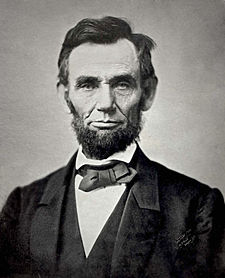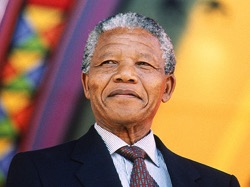If you are not already a regular reader of Imprimis, a monthly publication of Hillsdale College, I strongly encourage you to start.
 “Imprimis is the free monthly speech digest of Hillsdale College and is dedicated to educating citizens and promoting civil and religious liberty by covering cultural, economic, political and educational issues of enduring significance. The content of Imprimis is drawn from speeches delivered to Hillsdale College-hosted events, both on-campus and off-campus. First published in 1972, Imprimis is one of the most widely circulated opinion publications in the nation with over 1.8 million subscribers.â€
“Imprimis is the free monthly speech digest of Hillsdale College and is dedicated to educating citizens and promoting civil and religious liberty by covering cultural, economic, political and educational issues of enduring significance. The content of Imprimis is drawn from speeches delivered to Hillsdale College-hosted events, both on-campus and off-campus. First published in 1972, Imprimis is one of the most widely circulated opinion publications in the nation with over 1.8 million subscribers.â€
A subscription to deliver a printed version mailed to your home is free; an electronic copy is at your fingertips on the web. I always enjoy the insightful commentary from a broad range of speakers, all devoted to the principle of freedom.
 This month’s issue was adapted from a speech by Stephen F. Hayes, Senior Writer, The Weekly Standard. Entitled “The Tea Parties and the Future of Libertyâ€, the article highlights the rise of the Tea Party movement and discusses the objectives of participants of the movement.
This month’s issue was adapted from a speech by Stephen F. Hayes, Senior Writer, The Weekly Standard. Entitled “The Tea Parties and the Future of Libertyâ€, the article highlights the rise of the Tea Party movement and discusses the objectives of participants of the movement.
How did the Tea Party movement begin?
“The accidental founding of the Tea Party movement took place in February 2009, when CNBC commentator Rick Santelli let loose a rant against the stimulus package, and in particular the proposal to subsidize what he called “the losers’ mortgages.†He proposed a ceremonial dump of derivative securities into Lake Michigan, and a few hours later a website popped up calling for a Chicago Tea Party. The video clip raced around the Internet, and it was soon clear that many average Americans were furious about the massive new spending bill and the plan to subsidize bad mortgages.â€
Who is involved in the Tea Party movement? In July, 2008, during the last presidential campaign, John McCain participated in a town hall in Belleville, MI. A provocative question was posted by Rich Keenan, who told McCain he would not be voting for Obama. But then he said: “What I’m trying to do is get to a situation where I’m excited about voting for you.â€
Hayes explains further:
“I talked with Rich Keenan after the town hall. He described himself as a conservative independent. He said he often votes Republican but does not consider himself one. He added, “I do think that there are millions of Americans out there like me who are fairly conservative, probably more conservative than John McCain, and I think a lot of them are concerned about what’s going to happen if he does get elected.â€
So who participates in the movement?
“Keenan was right. There were millions of people out there like him—conservatives, independents, disaffected Republicans, and many of them stayed home on election day. These people form the heart of the Tea Party movement.â€
“…The Tea Party movement arose in an environment in which a growing number of Americans believed neither party was voicing its concerns.
“… This dissatisfaction flows directly from the president’s policies and those of his party. It is not simply “anti-incumbent,†as many of my press colleagues would have it. This voter outrage—and it is outrage, not hate—is specific and focused: Americans are fed up with big government and deeply concerned about the long-term economic health of their country.â€
Besides the outrage against big government and massive spending, there is a deeper concern:
“For many Tea Partiers, the massive and unconstitutional growth of government is the fundamental issue. But I think there’s something deeper, too. After her husband had won several primaries in a row in the spring of 2008, Michelle Obama proclaimed that for the first time in her life she was proud of her country. It was a stunning statement. It also foreshadowed what was to come: Since Barack Obama took office in January 2009, he has devoted much of his time to criticizing his own country. He apologizes for the policy decisions of his predecessors. He worries aloud that the U.S. has become too powerful. He has explicitly rejected the doctrine of American exceptionalism.â€
So, what will become of the Tea Party movement? Will it have a profound effect in the upcoming election? Only time will tell. The proof will be in the pudding, as they say.
Where you stand? I attended a Tea Party rally once. I was impressed with many of the speakers, but was disturbed by the hateful fringe. I asked that my name be taken off the mailing list when a few people on the Tea Party website commenced a hateful diatribe against Congressman Jeff Flake, who, in my mind, is as close to an ideal congressional representative as we have in government today.
The hateful fringe does a disservice to a legitimate grassroots movement fueled by concerns that echo my own: rapid growth of government, overspending and over-taxation, rejection of traditional values and the principles of American exceptionalism.
I do hope the Tea Party movement succeeds, if it serves as a catalyst to encourage disaffected American voters to engage in civil debate and bring about a profound effect this year’s election – a step towards reducing the size of government, reducing spending and taxes, and reversing the trend towards moral decay and apology for the greatest nation in the world.




 Today we celebrate the crowning event of that fateful July 4th, 1776, when a group of men with vision and faith, courage and fortitude, had the temerity to officially accept the principles of a sacred document, the Declaration of Independence, that marked the birth of our great nation:
Today we celebrate the crowning event of that fateful July 4th, 1776, when a group of men with vision and faith, courage and fortitude, had the temerity to officially accept the principles of a sacred document, the Declaration of Independence, that marked the birth of our great nation:




